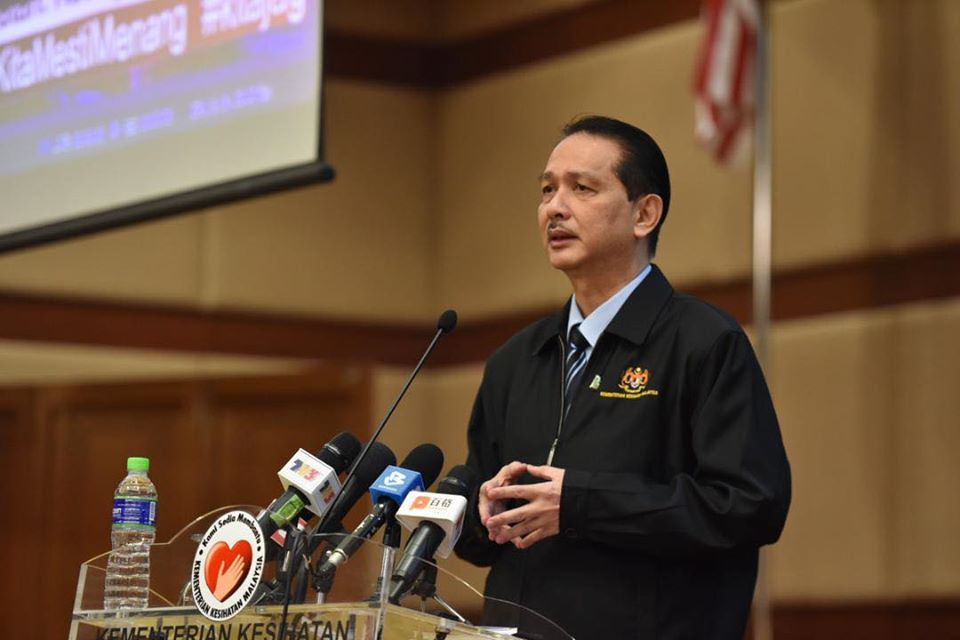KUALA LUMPUR, August 5 — The Ministry of Health (MOH) has permitted private health facilities to screen low-risk people for Covid-19 through the antigen rapid test kit (RTK-Ag).
According to Health director-general Dr Noor Hisham Abdullah, low-risk people consist of two categories: not a person-under-investigation (PUI) and people without a history of close contact with positive cases. These tests must be conducted in specific rooms or booths with good ventilation flow.
“The RTK-Ag is used as a point-of-care testing (POCT) screening test. RTK-Ag does not replace the Reverse Real-Time Polymerase Chain (rT-PCR) test’s diagnostic function for Covid-19, but has the advantage of detecting Covid-19 outbreaks quickly and in large numbers,” Dr Noor Hisham wrote in a July 13 letter to the Association of Private Hospitals Malaysia (APHM), the Malaysian Medical Association (MMA), the Medical Practitioners Coalition Association of Malaysia (MPCAM), the Federation of Private Medical Practitioners’ Associations, Malaysia (FPMPAM), and the Malaysian Muslim Doctors Organisation (Perdim), as sighted by CodeBlue.
Antigen RTKs detect antigens, which are viral proteins expressed only when the virus is actively replicating, so tests based on antigen detection can identify acute or early infection. However, RTK has a much quicker turnaround time at just minutes, whereas the RT-PCR test takes 24 to 48 hours to yield results in the lab and costs much more.
The Malaysian Paediatric Association stated that PCR nasal swab tests to detect SARS-Cov-2, the virus which causes the Covid-19 disease, cost between RM380 and RM450 at drive-through laboratories.
The Medical Device Authority (MDA), an agency under MOH, has separately authorised three Covid-19 test kits — Liangrun (Lionrun) Diagnostic Kit by FELCRA Supplies and Services and by MyEG Services Liangrun, as well as SD Biosensor STANDARDTM Q Covid-19 Ag Test by Science Valley Sdn Bhd, according to MDA’s June 18 letter to MMA, as sighted by CodeBlue.
Dr Noor Hisham told private medical facilities to conduct risk assessment before offering RTK-Ag testing services. This is to ensure the risk of getting an infection is low during the test procedure.
The operator must be a registered medical practitioner who has attended training and should possess a certificate of attendance of Sample Acquisition and Handling Training for Covid-19.
The Family Health Development Division under MOH or state or Federal Territories Health Departments will issue the certificate for general practitioners (GPs) and paramedics from the private health facilities.
Samples using the RTK-Ag can only be taken by parties registered or licenced under the Private Healthcare Facilities and Services Act 1998 in approved premises or other places.
The operator must consist of a registered medical practitioner or a medical laboratory technologist who have been trained to conduct tests by the RTK-Ag supplier.
According to the guidelines released by the MOH, all reporting of RTK-Ag test results must be done within a period of 24 hours in the Public Health Information System (SIMKA) Outbreak. Results of the tests should be printed from SIMKA and given to the client.
RTK-Ag sampling and testing operators must be well equipped with personal protective equipment (PPE), such as laboratory suits or long-sleeve insulation dresses below knee level with cuffs on the wrists, face shields, head cover, disposable rubber or nitrile gloves, disposable N95 masks, socks and covered shoes.
Two layers of gloves can be worn by the testing operators and the first layer of gloves should be changed for each patient to prevent cross-infection.
The standard operating procedures listed in the guidelines include good and safe microbiological practices, clinical waste disposal, as well as disinfection of test areas.








